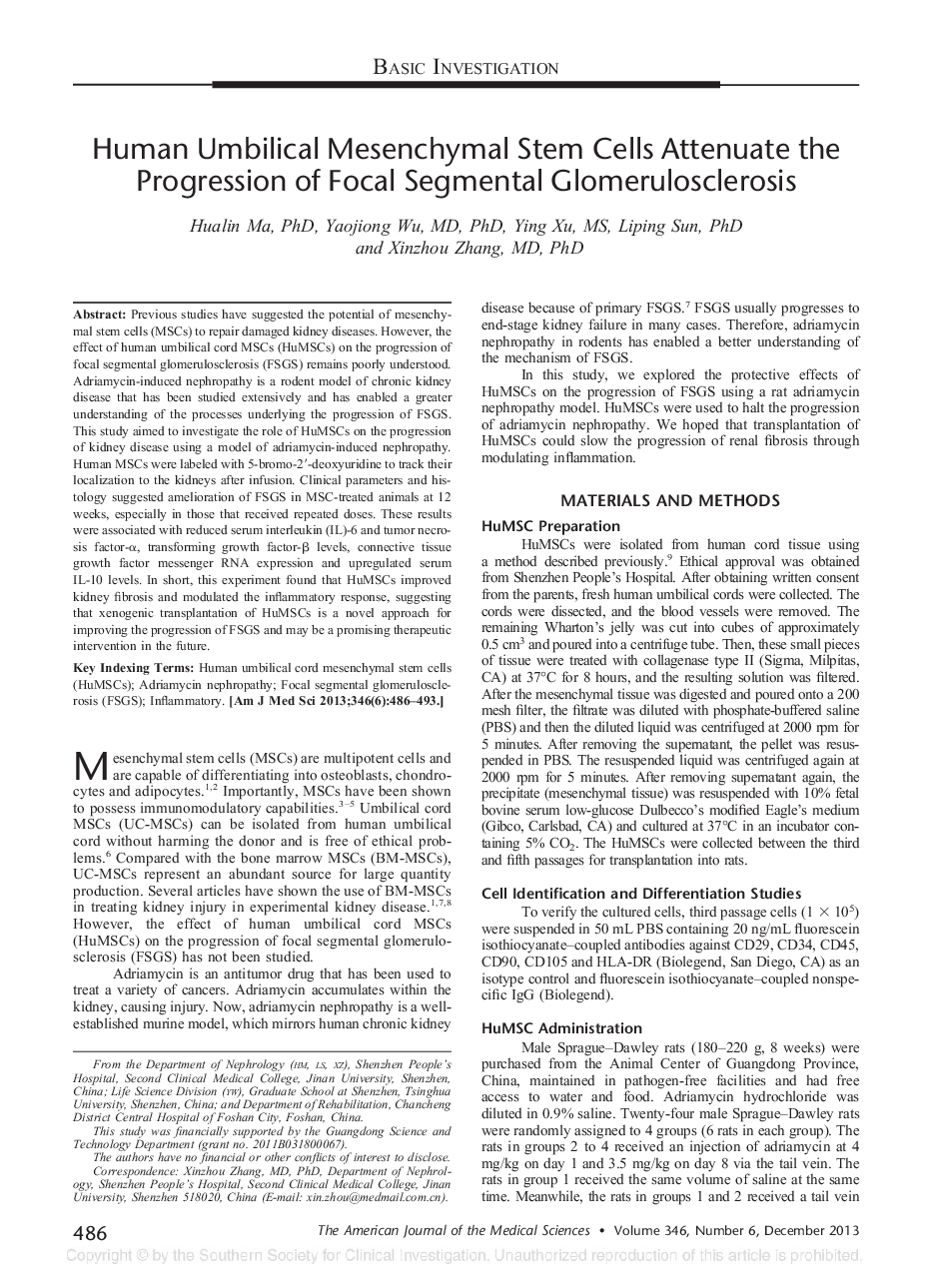| Article ID | Journal | Published Year | Pages | File Type |
|---|---|---|---|---|
| 2863986 | The American Journal of the Medical Sciences | 2013 | 8 Pages |
Previous studies have suggested the potential of mesenchymal stem cells (MSCs) to repair damaged kidney diseases. However, the effect of human umbilical cord MSCs (HuMSCs) on the progression of focal segmental glomerulosclerosis (FSGS) remains poorly understood. Adriamycin-induced nephropathy is a rodent model of chronic kidney disease that has been studied extensively and has enabled a greater understanding of the processes underlying the progression of FSGS. This study aimed to investigate the role of HuMSCs on the progression of kidney disease using a model of adriamycin-induced nephropathy. Human MSCs were labeled with 5-bromo-2′-deoxyuridine to track their localization to the kidneys after infusion. Clinical parameters and histology suggested amelioration of FSGS in MSC-treated animals at 12 weeks, especially in those that received repeated doses. These results were associated with reduced serum interleukin (IL)-6 and tumor necrosis factor-α, transforming growth factor-β levels, connective tissue growth factor messenger RNA expression and upregulated serum IL-10 levels. In short, this experiment found that HuMSCs improved kidney fibrosis and modulated the inflammatory response, suggesting that xenogenic transplantation of HuMSCs is a novel approach for improving the progression of FSGS and may be a promising therapeutic intervention in the future.
